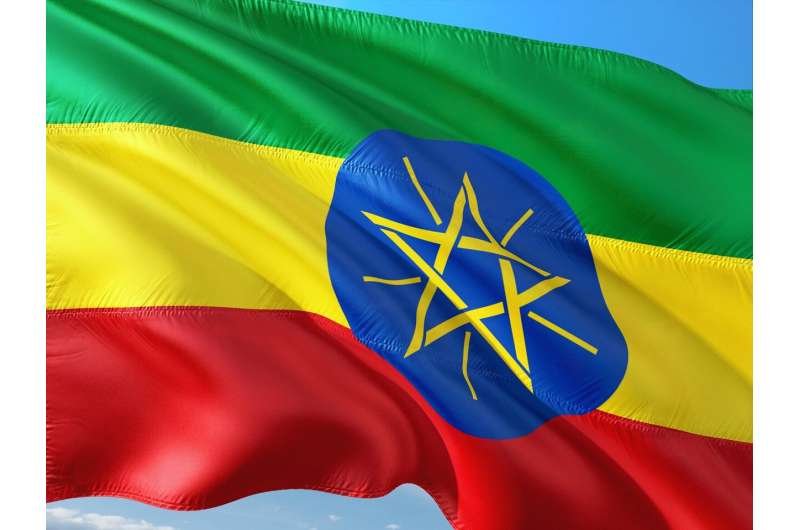Ethiopia's Innovative Emergency Medical Response System Sets a Regional Standard

Ethiopia has developed Africa's first WHO-certified regional emergency medical team and training hub, setting a scalable example for strengthening health emergency responses across the continent.
Ethiopia has established a comprehensive national emergency medical team and hosts Africa's first WHO-certified regional training hub, offering a scalable model to enhance emergency health response across the continent.
Ethiopia, with its diverse population of approximately 126.5 million, faces numerous humanitarian challenges, including climatic shocks, conflicts, and food insecurity. Flooding further complicates the situation by displacing families and elevating waterborne disease risks. Recognizing the critical need for swift and effective emergency medical interventions, Ethiopia has made significant investments to build a resilient health emergency system.
The country's journey began with the creation of the National Disaster Medical Assistance Team in 2018. Despite its importance, the initial team faced challenges like unclear operational procedures, poor coordination, limited stakeholder engagement, and resource constraints. Learning from these gaps, Ethiopia launched the National Emergency Medical Team, aligning with global standards to enhance readiness and operational efficiency.
This team is the first of its kind in the WHO African Region, covering 47 countries. It is equipped to respond rapidly to disasters, disease outbreaks, and humanitarian crises by deploying trained health professionals in mobile units with standardized protocols and logistics, capable of mobilization within 72 hours. The team has already responded to major emergencies, including the Tigray conflict, mass displacement in Amhara, and the COVID-19 pandemic.
In partnership with WHO, Ethiopia established Africa's inaugural Emergency Medical Team Training Center in April 2021. This facility, repurposed from a COVID-19 field hospital in Addis Ababa, offers advanced simulation-based training. It emphasizes realistic emergency scenarios, command systems, and cross-sector coordination, adopting a 'train-the-trainer' approach to empower other African countries to develop their own emergency response teams.
Ethiopia's experience underscores that emergency preparedness extends beyond reaction; it involves system building, ongoing support, and learning through practice. Strong political commitment, integration with national health policies, and sustained funding are fundamental. The successful deployment during crises like droughts demonstrated the importance of pre-existing logistics and protocols.
Coordination across sectors is essential for effective response, involving local health authorities, military, and humanitarian partners. Additionally, mental health support for responders and safeguarding their well-being are vital aspects that Ethiopia has prioritized.
The initiative's significance lies in its contribution to national and regional health security. A well-equipped emergency team can save lives by providing immediate care, reducing dependency on international aid, and strengthening overall health system resilience. Ethiopia's model not only advances its own emergency response capacity but also offers a practical blueprint for other African nations.
For policymakers, investing in local emergency response capabilities can build trust, foster regional cooperation, and contribute to a resilient health infrastructure. Ethiopia’s approach illustrates that with political will, strategic planning, and regional collaboration, countries can develop effective emergency medical systems to better protect their populations in times of crises.
Stay Updated with Mia's Feed
Get the latest health & wellness insights delivered straight to your inbox.
Related Articles
Innovative Algorithm Uses Fluid Dynamics to Predict Glioblastoma Spread
A groundbreaking algorithm utilizing fluid flow dynamics offers promising advancements in predicting the spread of glioblastoma, guiding more precise surgical and therapeutic interventions.
Innovative Exercise MRI Technique Enhances Heart Disease Diagnosis
A new exercise-based MRI technique allows clinicians to observe real-time heart responses during physical activity, facilitating earlier and more accurate diagnosis of heart disease.
Impact of Adolescent Antidepressant Use on Adult Pain Sensitivity
A new study reveals that antidepressant use during adolescence, especially Prozac, may increase pain sensitivity in adulthood, highlighting the need for further research into long-term effects of psychiatric medications.
U.S. Meat Supply Tested by Olympic Anti-Doping Laboratory for Performance-Enhancing Substances
UCLA athletes' anti-doping testing methods are now used to analyze U.S. meat for performance-enhancing residues. The study confirms that beef, pork, and chicken typically contain safe levels of growth-promoting agents, supporting current regulatory practices.



